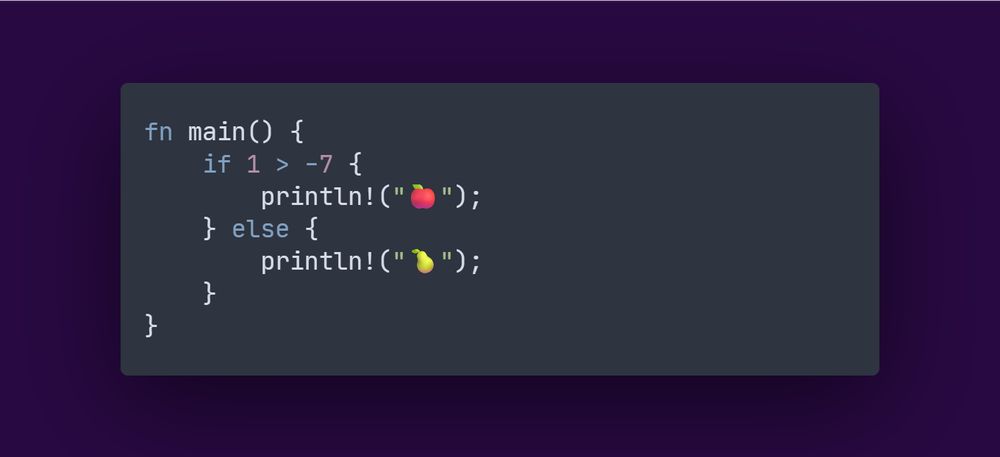Signal: @timclicks.01
Nothing good.
In my testing, the compiler generated code that provoked the CPU to fault due to an illegal instruction.

Nothing good.
In my testing, the compiler generated code that provoked the CPU to fault due to an illegal instruction.


(Links to references at the end of the thread)

(Links to references at the end of the thread)

if 1 > -7 {
println!("🍎");
} else {
println!("🍐");
}
The compiler can deduce that one is greater negative seven, so it doesn't need to compile the "else" side. The whole conditional can be eliminated.

if 1 > -7 {
println!("🍎");
} else {
println!("🍐");
}
The compiler can deduce that one is greater negative seven, so it doesn't need to compile the "else" side. The whole conditional can be eliminated.


a

a
The main reason is portability. It's almost easier to build Rust programs for multiple operating systems than to port a large C codebase that's platform-specific.

The main reason is portability. It's almost easier to build Rust programs for multiple operating systems than to port a large C codebase that's platform-specific.

The test coverage page in the documentation linked to from the README makes it clear that there are gaps in the test compatibility.

The test coverage page in the documentation linked to from the README makes it clear that there are gaps in the test compatibility.
That's right, or at least that's what it seems like at first look. A component added to Ubuntu that's written in Rust was broken, and that prevented automatic updates.

That's right, or at least that's what it seems like at first look. A component added to Ubuntu that's written in Rust was broken, and that prevented automatic updates.

![Screenshot of Rust's documentation of converting pointers to [Rust] references, with the following text highlighted " You must enforce Rust’s aliasing rules. The exact aliasing rules are not decided yet, ..."](https://cdn.bsky.app/img/feed_thumbnail/plain/did:plc:wpznphv6cih7p5dqjjspknkd/bafkreidulkbx6os4dlnghhbgprbjsnlatmqglm3ulhuswlh4xbc3px36pi@jpeg)












